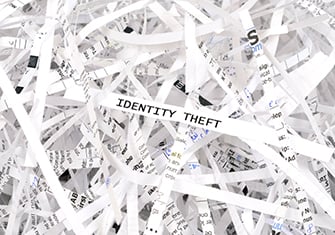
Understanding The Mastercard MATCH List: Violation of Standards
April 17, 2024
Am I On A High-Risk Merchant List?
July 23, 2024Victim of Identity Theft On the MATCH List?
Mastercard has developed a robust safeguard to protect banks and payment processors from unacceptably high-risk, illegal, or unscrupulous merchants. While this list has been developed for protection, it can cause devastating consequences to the people and businesses that are placed on it through no fault of their own. One of the ways an individual and their business can be placed on the MATCH List is through identity theft. Keep reading to learn more about how identity theft can get you on the MATCH List and how to get off the MATCH List so you can go back to business as usual.
What is the MATCH List?
Mastercard takes individuals’ privacy and data protection rights very seriously. Mastercard is a global payments network committed to making payments safe, simple, and secure. To ensure the integrity of our payments network across all network participants, including customer banks, merchants, and cardholders, Mastercard has put in place robust safeguards to protect cardholders against fraud.
Merchant-based fraud, in particular, significantly harms individuals, financial institutions, the financial ecosystem, and society as a whole. It is one of the most common causes of financial loss and can take many forms. For example, a fraudster can pose as a legitimate merchant or take over an account to process payment transactions and steal funds.
To limit and prevent such fraud, Mastercard operates the Mastercard Alert To Control High-Risk (Merchants) system (“MATCH”). Banks that acquire card payments for merchants and third-party processors acting on such acquirers’ behalf (collectively “Financial Institutions”) can upload information about merchants that were terminated for fraud into the MATCH database. When a financial institution considers onboarding a new merchant, it can consult the information in MATCH to help assess the risk related to onboarding that merchant.
How Is a Business Placed on the MATCH List?
Mastercard has created a portal to allow banks and payment processors to add merchants who have been terminated for specific reasons. Financial institutions can also search, add information, add alerts, and inquire for more information through the portal.
A business can be placed on the MATCH List for one of thirteen reason codes. They include:
- Account Data Compromise
- Common Point of Purchase (CPP)
- Laundering
- Excessive Chargebacks
- Excessive Fraud
- Fraud Conviction
- Mastercard Questionable Merchant Audit Program
- Bankruptcy/Liquidation/Insolvency
- Violation of Standards
- Merchant Collusion
- PCI Data Security Standard Noncompliance
- Illegal Transactions
- Identity Theft
As you can see, identity theft is one of the many reasons a merchant can be placed on the list through no fault of their own.
What Is Identity Theft Defined As?
Identity theft is when someone steals your personal information and uses it without your permission, according to Experian.
According to the National Council on Identity Theft Protection, reports of identity theft have grown exponentially in the past few years, jumping from 3.43 million in 2019 to 5.74 million in 2021. There are several forms of identity theft, and each one can affect you in a different way.
There’s no way to inoculate yourself against identity theft completely. But if you’re diligent in learning how your information can be at risk and what fraudsters can do with it, you’ll be better equipped to protect your data and act quickly if someone does manage to steal it.
Can A Victim of Identity Theft Be Placed On The MATCH List?
Yes. You can be an innocent victim of identity theft, and your name, business, associates, and other personal information might be placed on the MATCH List. This usually happens when a business owner’s name or identity has been stolen to open a fraudulent merchant account.
Even though the other merchant account may have a different business name, all of the information, including the victim’s name, is placed on the MATCH List. This will, in turn, affect any other merchant accounts under the victim’s name.
What Do I Do?
If you are an innocent victim of identity theft and a merchant account was created under your name fraudulently, there are a few different routes you can take. First, you can allow your name to age off the MATCH List after five years. You can also seek early removal from the MATCH List with professional legal help. Otherwise, you will have to become a high-risk merchant, which may be on your record forever, and pay exorbitant fees in order to maintain a high-risk merchant account.
Aging Off The MATCH List
Anyone placed on the MATCH List can age off of it in five years. After five years, there will be no record of you, your business, or your associates ever having been on it, and you can go back to business as usual with a normal merchant account.
However, this is difficult to navigate for most, if not all, small businesses. Credit and debit cards are the lifeblood of most businesses. Rarely do people carry cash or checks anymore. If you do not have the ability to accept credit cards, you will likely be out of business very quickly.
As mentioned, you can accept your fate as a high-risk merchant. However, this comes with lengthy contracts, exorbitant fees, and a label on you for years to come. This will eat into your profits and business integrity, and can make it very difficult for you to operate your business or any other business you wish to open.
Early Removal from The MATCH List with TFM Law
Last year, our firm removed 100% of the people who came to us from the MATCH list. If you have found yourself on the Match List, you have options. Don’t wait the five-year period; get back to business ASAP.
One of the things you can do for early removal of the MATCH List is to call your payment processor and ask whether you can prove your innocence or find a way to work with them to get early removal. This is a difficult process and not one that your payment processor has to agree to do. That is why having legal help can give you a big upper hand when seeking early removal.
Who is TFM Law?
The Law Offices of Theodore Monroe focuses on litigation and counseling in the areas of payments, credit card processing, e-commerce, direct response marketing, and Federal Trade Commission enforcement.
Theodore F. Monroe, Founder of TFM Law, has successfully:
- Represented merchants recovering funds from processors
- Structured processing relationships to comply with Card Brand requirements
- Drafted and negotiated contracts involving payment facilitators and ISOs
- Represented continuity merchants in compliance and litigation issues
- Fought for numerous companies in suits brought by the Federal Trade Commission and obtained excellent results for firms in the digital products, loan
- modification, government grant, and nutraceuticals industries
Before opening his firm, Mr. Monroe practiced law with Crosby, Heafey, Roach & May (now Reed Smith LLP) and Lewis, D’Amato, Brisbois & Bisgaard (now Lewis, Brisbois, Bisgaard & Smith), where he defended numerous accounting and law firms in professional liability actions, and insurance carriers in bad faith actions.
Before becoming a lawyer, Mr. Monroe worked as a forensic accountant at Coopers & Lybrand, which provided him with a unique background in forensic accounting and financial analysis among litigators in Los Angeles. Mr. Monroe studied at Duke University Law School, achieved a BS with Honors in Accounting from the University of Kentucky, and is a member of the California State Bar and the Kentucky State Bar.




